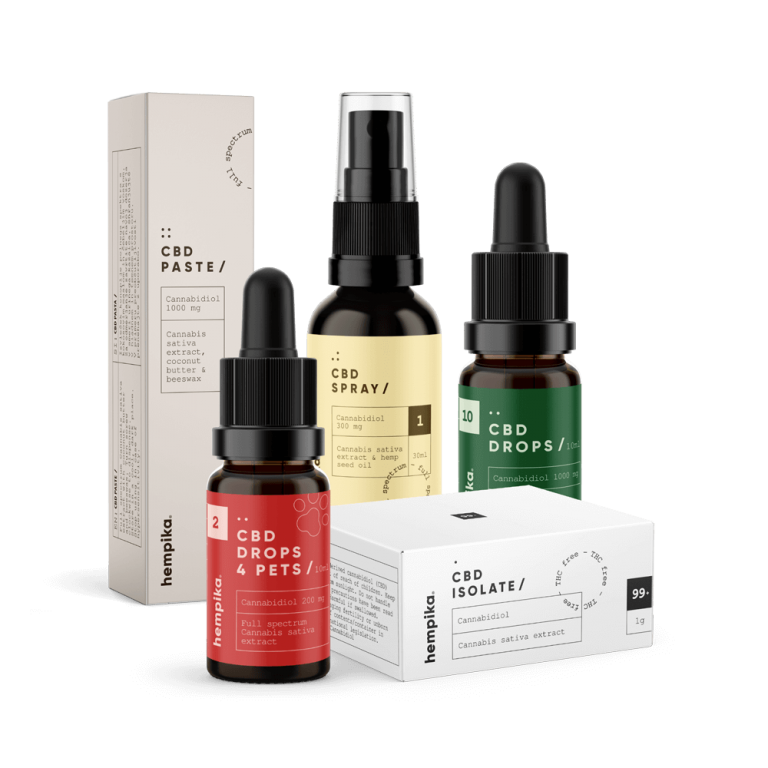Inflammation is our body’s defense mechanism against nasties that irritate it or makes us sick. But sometimes, instead of helping, this natural process can cause us more problems, and even worsen our symptoms. In fact, low-grade, chronic inflammation has been implicated in many serious chronic medical conditions – from diabetes to even epilepsy.
Some studies have found that CBD is an effective agent against inflammation, be it chronic or acute. Not only can CBD help control an abnormal inflammation process, but it also has properties that help relieve symptoms worsened by inflammation.
Unfortunately, using CBD for inflammation frequently confuses people. There are a lot of CBD products to choose from – oils, tinctures, soft gels, and even CBD balm. In addition to its different forms, finding the right CBD dosage for inflammation is also a problem. There’s no recommended daily allowance that has been set for CBD for inflammation and pain.
CBD oil for inflammation and pain is a personalized form of treatment. It’s a trial-and-error approach. You have to find the CBD dosage that works best in controlling your symptoms.
But how do you find the right dosage that can help reduce inflammation, pain, and other symptoms? More importantly, does CBD help with inflammation? Is it really worth trying?
What Is Inflammation?
Inflammation is our immune system’s defense mechanism against irritants or infections caused by harmful microorganisms. It is a complex response that involves specialized proteins that signal the start of the inflammatory process, as well as immune cells and the circulatory system.
These different biological systems work together to eradicate the irritants. Once these “foreign intruders” are removed, the damaged cells and tissues can start their healing process.
Think of the immune system as a sort of security guard. As soon as it detects an intruder, the immune system immediately “attacks and kills” it. Once the job is done, everything goes back to normal.
Unfortunately, our immune system sometimes fails. It sees our own cells and tissues as something dangerous and attacks them. This can result in chronic medical diseases such as rheumatoid arthritis (chronic joint inflammation and pain), diabetes, multiple sclerosis (nerve inflammation), psoriasis (skin inflammation), and gastric ulcers resulting in stomach inflammation.
What Are The Types Of Inflammation, Their Causes, And Their Different Symptoms?
There are two kinds of inflammation – acute and chronic.
Acute inflammation is a short-term condition and typically lasts for a few days. The most common causes of inflammation of this type are injuries and infections. It can also be caused by exposure to irritants, such as insect bites.
Common examples include:
- Eye inflammation caused by hay fever
- Lip inflammation caused by an allergic reaction
- Ankle inflammation caused by ligament injury
- Elbow inflammation caused by tennis elbow or lateral epicondylitis
- Finger inflammation caused by a laceration
- Tonsil inflammation caused by a bacterial infection
Signs of inflammation include pain, swelling, warmth, redness, and loss of movement or function of the affected part.
Chronic inflammation, on the other hand, is long-term inflammation that lasts for months and even years.
Causes of this type of inflammation include:
- Chronic medical illnesses and diseases like nephritis (kidney inflammation) and hepatitis (liver inflammation)
- High levels of stress and anxiety
- Hormonal and neurotransmitters imbalances causing mental health problems and brain inflammation
- Inflammation of the lungs caused by smoking
- Excessive alcohol use
- Obesity
- Insomnia
- Autoimmune problems causing systemic inflammation
Unlike acute inflammation, chronic low-grade inflammation is frequently misdiagnosed, but its effects are widespread and can even work to exacerbate other medical conditions.
What Are The Different Inflammation Treatment Approaches And Natural Remedies For Inflammation?
Inflammation is treated with NSAIDs (nonsteroidal anti-inflammatory drugs) and painkillers. If the inflammation is caused by an infection, antibiotics are commonly prescribed.
For chronic inflammation, corticosteroids and immunosuppressant drugs are also given. These medications help, but long-term use can result in complications like hypertension as well as liver, kidney, and gastrointestinal problems.
You can also include supplements for inflammation control in your diet such as fish oil, ginger, and green tea. These dietary additions can help to reduce and alleviate symptoms.
Today, CBD oil for inflammation is becoming increasingly popular. It’s gentler than conventional drugs, produces fewer side effects, and can be just as effective.
What is CBD?
Produced by the cannabis and hemp plants, CBD is a nonpsychoactive cannabinoid. This means that CBD doesn’t make a user ‘high’ like THC. CBD has powerful anti-inflammatory effects that not only decrease inflammation and pain but also help speed up the healing process.
CBD comes in many forms, including oils and tinctures, as well as soft gels and topicals like CBD creams and balms.
How Does CBD Oil For Inflammation Work?
CBD has many health benefits, but how exactly does CBD reduce inflammation?
Researchers found that immune cells have type 2 cannabinoid receptors. This receptor, when activated, is also responsible for controlling the immune response.
When there’s an overactive immune response, for example, this receptor “switches off” the immune cells. This prevents the immune cells from “calling” other immune cells to the site, resulting in reduced inflammation.
Unfortunately, this response is often overwhelmed by external factors like extensive injuries and internal factors like diseases and illnesses. Left untreated, it can lead to chronic inflammation and its associated symptoms and complications.
Now, CBD also activates the type 2 cannabinoid receptors found in immune cells. CBD, in a way, helps the receptors switch off the abnormal immune response, leading to a reduction in inflammation.
CBD also stimulates other receptors responsible for pain control. Its activation of these receptors results in decreased pain.
Clinical Studies On Using CBD For Inflammation
Numerous studies have been conducted on the use of CBD for pain and inflammation.
In one study, a combination of CBD and THC oromucosal spray was given to 58 patients with rheumatoid arthritis. Those who were placed on the cannabinoid therapy reported marked improvement in their pain, inflammation, sleep problems, and other symptoms.
Multiple sclerosis is a debilitating disease wherein the immune system attacks the neurons or nerve cells. In another study, patients with multiple sclerosis were given a combination of CBD and THC oromucosal spray. Those who received this treatment reported improvement in their overall wellbeing, including pain.
How Do You Use CBD Products And CBD Balm For Inflammation?
CBD therapy is a personalized form of treatment. This means that the CBD dosage of one person may not necessarily work for another.
Let’s say that you already found the best CBD for inflammation and pain, the next step is finding the perfect dosage.
What you can do is to start at the lowest dose possible (for example, half a dropper of CBD oil or tincture) and then gradually increase the dosage based on your body’s response to CBD.
If, after three to five days, you did not notice any improvement in your symptoms, then increase your dosage. On the other hand, if you felt some adverse side effects, lower your dosage.
The best way to use CBD oil or tincture is to place it under your tongue and then let it remain there for about two minutes. The cells immediately absorb CBD, and it will start working to help relieve your symptoms.
You can also add CBD balm or CBD cream for inflammation to your treatment regimen. Just apply a generous amount to the painful and swollen area at least three times a day. Make sure that you wash the area first with soap and warm water and then dry it thoroughly before applying the CBD balm.
In addition to CBD treatment, you can also modify your diet and add foods that fight inflammation, such as green leafy veggies (spinach), fatty fish rich in omega fatty acids (tuna and sardines), and fruits (cherries and strawberries).
It’s important to remember that if you have chronic medical problems and would like to try CBD, consult your primary care doctor first. This is especially important if you are taking existing medications.
Frequently Asked Questions About CBD And Inflammation
Below are some of the commonly asked questions about CBD for inflammation and pain.
-
- In addition to its anti-inflammatory effects, are there other CBD benefits?
CBD isn’t just for chronic pain and inflammation. It can also help relieve other symptoms associated with chronic pain and inflammation, such as sleep loss, fatigue, appetite loss, and muscle stiffness.
-
- Is CBD oil for inflammation safe?
Yes. According to a World Health Organization CBD report, it is a safe, non-toxic, and nonpsychoactive cannabinoid which can help relieve numerous symptoms.
-
- What is the best CBD oil for inflammation?
It’s hard to pinpoint which CBD product works best. Spend some time researching the company first and its CBD products by reading reviews and feedback made by their clients. You can also ask your friends and relatives for recommendations. Doing your research can help you reach an informed decision.
Conclusion: Does CBD Oil Help With Inflammation?
CBD has powerful anti-inflammatory and pain-killing properties, as shown by numerous CBD inflammation studies. It helps fight inflammation, and it also helps reduce pain.
If you want to try this treatment but are unsure of just how much CBD for inflammation to use, it’s always safe to start at the lowest dose possible. You can also consult your doctor for the best CBD product and dosage.
Author: B. D.
Source(s):
- https://www.ncbi.nlm.nih.gov/pmc/articles/PMC3492709/
- https://www.ncbi.nlm.nih.gov/pmc/articles/PMC2828614/
- https://www.ncbi.nlm.nih.gov/pmc/articles/PMC2503660/
- https://www.ncbi.nlm.nih.gov/pmc/articles/PMC2768535/
- https://www.ncbi.nlm.nih.gov/pmc/articles/PMC2828614/
- https://www.ncbi.nlm.nih.gov/pmc/articles/PMC2503660/
- https://pubmed.ncbi.nlm.nih.gov/16282192/
- https://pubmed.ncbi.nlm.nih.gov/26764336/
- https://www.who.int/medicines/access/controlled-substances/CannabidiolCriticalReview.pdf


